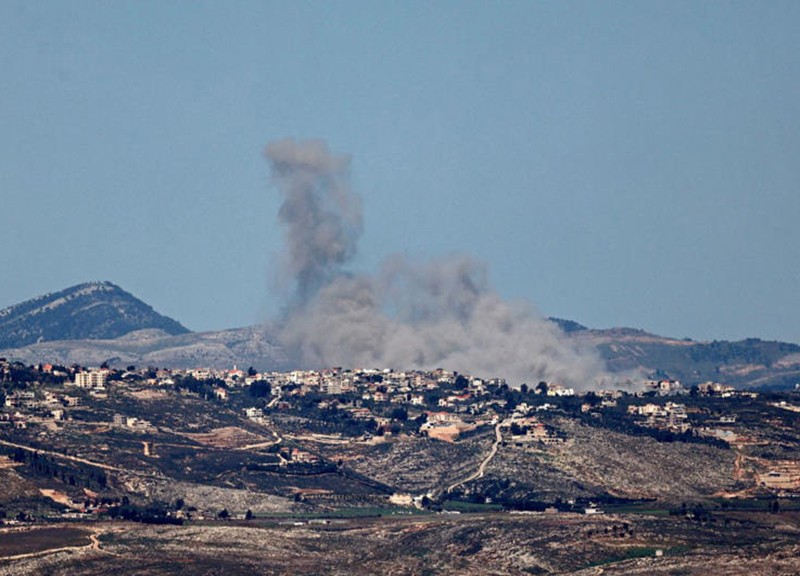
Latest strikes come after Biden envoy visited Beirut in bid to reduce conflict
By Sune Engel Rasmussen and Adam Chamseddine, WSJ.
Hostilities flared between Israel and the Lebanese Hezbollah militia, threatening to broaden Israel’s war to its northern border amid an impasse in negotiations to reach a cease-fire in Gaza.
Hezbollah launched about 100 Katyusha rockets at northern Israel on Tuesday, the heaviest barrage since Israel’s war in Gaza against Hamas—an ally of the Lebanese group—began five months ago.
Hezbollah said its rockets were a response to an Israeli airstrike Monday night in Baalbek in northeastern Lebanon. Israel retaliated later Tuesday with more strikes against two Hezbollah military command centers and weapons depots, also in Baalbek, which residents of the area say had been used to support its war efforts in Syria. Israel said the Monday strike in Baalbek was retaliation for drones dispatched to the Golan Heights.
Two Hezbollah fighters were killed in the Israeli attacks Tuesday, the group said.
President Biden’s special envoy, Amos Hochstein, visited Beirut last week in a bid to halt the cross-border fire between Hezbollah and Israel. Hezbollah has said it would stop attacks on Israel if there is a cease-fire in Gaza. But Hochstein said a truce in the enclave didn’t guarantee calm in Lebanon, and that a diplomatic solution between the militia and Israel is necessary.
Israel and Hezbollah have been engaged in tit-for-tat strikes since Hamas’s Oct. 7 attack on Israel, calibrated around unspoken red lines to avoid escalating the conflict into an all-out war. But Israel in recent weeks has hit targets far inside Lebanese territory, well beyond the border region that usually is at the center of the conflict between the two sides.
The fresh escalation stretches the unstated rules of escalation between the opposing forces, and is partly a result of political pressure on Israeli Prime Minister Benjamin Netanyahu’s government to confront Hezbollah, which is a more powerful force than Hamas, and whose presence on the border has forced 100,000 citizens in northern Israel to evacuate their homes.
This mass displacement “is unprecedented since the formation of the country. It’s a very serious pressure factor on the Israeli government to reshape the security landscape along the Lebanon-Israel border,” said Daniel Sobelman, an Israel-based research fellow with the Middle East Initiative at Harvard Kennedy School.
A similar number of Lebanese citizens have been displaced on the Lebanese side of the border. The Israeli military said it is working to eliminate threats posed by Hezbollah. It said it also launched a strike against Hezbollah military infrastructure in Syria, which borders Lebanon.
Itamar Ben-Gvir, Israel’s national-security minister, criticized Defense Minister Yoav Gallant on Tuesday for not responding more forcefully to the latest Hezbollah rocket barrage.
Israel insists that Hezbollah withdraw all its forces north of Lebanon’s Litani River, 18 miles from the border, as mandated under a United Nations resolution that ended the 2006 war. Yet, in recent weeks, Israel has hit Hezbollah targets far from the 18-mile zone.
Baalbek, which Israel struck on Monday and Tuesday, is about 60 miles from the border, and home to a Unesco-listed Roman temple complex that is one of Lebanon’s main tourist attractions. Hezbollah said it would halt attacks when Israel stops its assault on Hamas in Gaza.
“When the Netanyahu government stops the massacre in Gaza, the rest of the fronts stop, including Lebanon,” said Hassan Fadlallah, a member of Parliament for Hezbollah.














